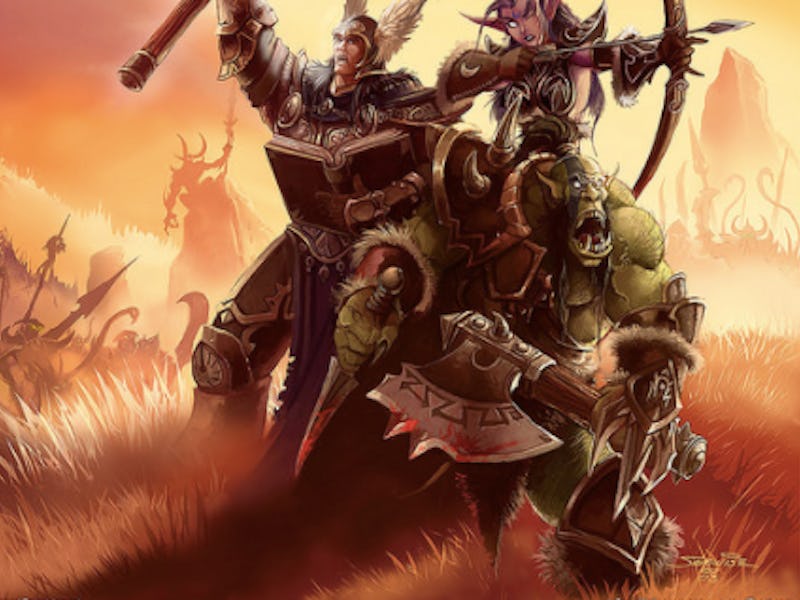Completing quests and battling monsters in dungeons can translate to professional success, a psychology study claimed on Wednesday. No, it’s not because people can use their World of Warcraft savagery to go after it, Battle Royale-style through an open office floor plan, the researchers from the Missouri University of Science and Technology explain. It’s because people who successfully work as a team while playing World of Warcraft share similar qualities to people who thrive on teams here in our mortal realm. Building those skills as a player may very well be a good way to level up at work.
“Our hope was that we could understand how people’s gameplay behavior might be predictive of workplace behavior,” study lead and psychological science professor Nathan Weidner told Inverse. “What we found is that there is some evidence to suggest that some of those skills might transfer. This link to achievement was especially true when it came to people’s communication skills and their technology readiness.”
Weidner and graduate student Elizabeth Short came to this conclusion after studying 288 World of Warcraft users. In particular, these users were playing the expansion pack Warlords of Draenor; those involved in a follow-up survey were working through the Legion expansion. Weidner collected players’ basic demographic information as well as data about their work motivations, communication skills, personality, and their preference for teamwork. The researchers then examined the raid- and dungeon-based achievement points the players collected during World of Warcraft (collected from the game’s armory website) to determine whether certain skills or personality traits were associated with in-game success.
While they didn’t find a link between particular personality traits and team performance within the game, they did find another link.
"World of Warcraft: Legion"
The data revealed consistent support for a preference for teamwork and technology readiness. They also showed a link between gamer identity strength and work performance, suggesting that those who display higher passion and engagement within the game might demonstrate those qualities at work as well.
This study was inspired, in part, by Weidner’s own experiences playing World of Warcraft. While he played with professional peers, he noticed that certain player qualities emerged that aligned with the qualities it takes to work well on a team in the workplace.
“I love World of Warcraft in my free time and I love industrial psychology as a profession,” says Weidner. “So it was natural to look at the two of them together.”
Weidner was also struck by an interview in which Google X’s Stephen Gillet explained that leading his guild in the game has taught him real life skills.
“I thought, ‘from what I know from leadership studies, this makes a lot of sense,’” says Weidner. “You have to use a lot of the same psychological skills in the game as you do in an office.”
Do orcs make better officemates?
Short will be presenting this research at the annual Society for Industrial and Organizational Psychology Conference at the end of April. Currently, she and Weidner are conducting a study on how specific game play behavior and avatar choice might also translate into offline behavior. In the original study, there didn’t seem to be a correlation between, say, choosing a Troll avatar and actually trolling people, but they believe it’s a connection that deserves some more examination.
Weidner also suspects that the results of this study would hold true for other multiplayer games, like the online version of Final Fantasy. How teamwork works in online games, he says, is not so different to how teamwork works offline.
“There are cognitive components to playing — you have to outthink your opponent, strategize, and work as a team,” says Weidner. “I think there’s a lot of connections to be made, it’s just a matter of figuring out how to measure it.”
